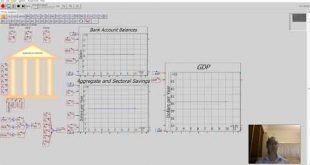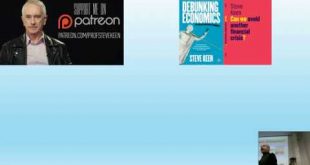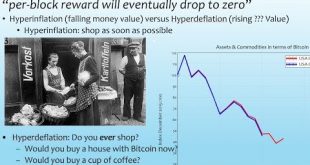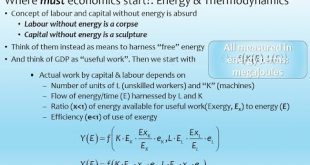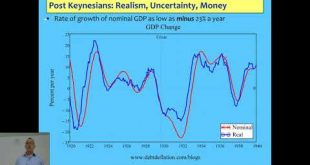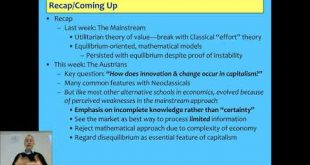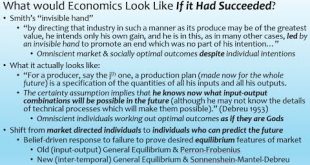And what happens to GDP when you do. A cautionary tale about thinking that what works for an individual or sector works for the economy as a whole. Also a quick demonstration of some of the new features of the Open Source system dynamics modelling tool Minsky: https://sourceforge.net/projects/minsky/
Read More »The Reformation of Economics
500 years ago, Martin Luther began the campaign that led to the Reformation of the Catholic Church. Yesterday at the University College London, six rebel economists made a call for a similar reformation of today's modern version of the Catholic Church, Neoclassical Economics. Listen to Andrew Simms, Victoria Chick, Kate Raworth, Mariana Mazzucato, Sally Svenlen, and myself (chaired by The Guardian's Economics Editor Larry Elliott) as we call for the Reformation of Economics. You can read...
Read More »Can Crypto Currencies be Money? My talk at BitBrum on November 19 2017.
I gave this talk at BitBrum (http://bitbrum.org/), and cover what money is, why economists don't understand it (but anthropologists like David Graeber do), what it actually is, whether Bitcoin qualifies (I don't believe it does), and whether Bitcoin is in a bubble (which I believe it is--it has increased in price by almost 1000% in the past year), and what might happen to its price if it actually becomes money (rather than a speculative collectible) and starts being used on a large scale for...
Read More »A bit of an Autobiography on Energy
I gave this talk to YSI members attending the 17th UNCTAD debt conference, at which I was one of the speakers (along with Jan Kregel: the speeches are available here: http://unctad.org/divs/gds/dmfas/what/Pages/Debt-Conference-2017.aspx). It was a hastily organised talk, and I started it with a lengthy biographical exposition on why I led a student revolt against the teaching of economics at Sydney University in 1973, my initial work on Marx's theory of value, and how this has finally led...
Read More »Australia’s Economy is a House of Cards
By Matt Barrie & Craig Tindale. I recently watched the federal treasurer, Scott Morrison, proudly proclaim that Australia was in “surprisingly good shape”. Indeed, Australia has just snatched the world record from the Netherlands, achieving its 104th quarter of growth without a recession, making this achievement the longest streak for any OECD country since 1970. Australian GDP growth has been trending down for over forty years Source: Trading...
Read More »INET Young Students Initiative 2017 Can we avoid another financial crisis #inet2017 #newecon
If you've watched my OECD talk, then this is the same content, but at much higher speed! The failure of mainstream economics to anticipate the crisis--in fact, a prediction of good times; that macroeconomics can be derived from itself rather than from micro, as DSGE models attempt to do; a simple model derived from dynamizing three macroeconomic definitions that predicts both a Great Moderation and a Great Recession; the private debt trap we have got ourselves into while politicians obsess...
Read More »Becoming An Economist 2017 Lecture 04: Post Keynesian Economics
For my students at Kingston: an overview of the Post Keynesian school
Read More »Becoming An Economist 2017 Lecture 03: Austrian Economics
For my students at Kingston: an overview of the Austrian school
Read More »Becoming An Economist 2017 Lecture 02: Neoclassical Economics
For my students at Kingston: an overview of the Neoclassical school
Read More »What would economics look like if it had succeeded?
Mainstream economists today see themselves as the descendants of Adam Smith, and they regard their models as having operationalized Smith's rhetoric about the "invisible hand" of the market. But in fact, they have done the opposite of what Smith imagined: whereas Smith conceived of the market mechanism leading to a socially beneficial outcome despite the intentions of individuals in the market, modern mainstream economics relies upon the fiction of proto-Gods called "rational economic...
Read More » Steve Keen’s Debt Watch
Steve Keen’s Debt Watch

